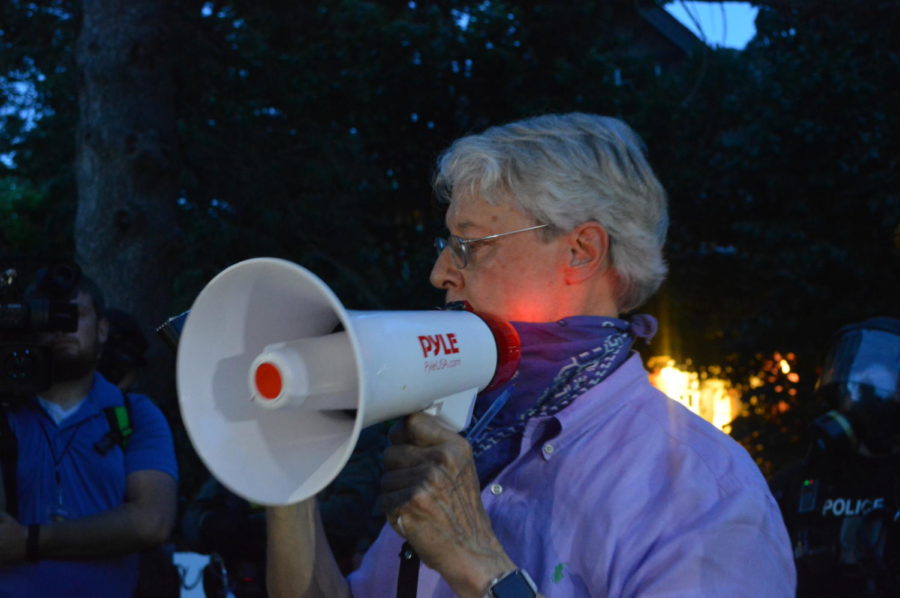- News
- News / Politics And Administration
- News / Politics And Administration / City
- News / Politics And Administration / State
Des Moines City Council approves the first reading of the anti-racial profiling ordinance
June 8, 2020
The Des Moines City Council unanimously voted to pass the first reading of the anti-racial profiling ordinance — despite the Des Moines community’s disapproval.
“I do support Iowa CCI’s six points, but honestly that is not nearly enough for me,” said Indira Sheumaker, who spoke to the City Council. “I am not satisfied with those six points, those are lower than the bare minimum, honestly, and what you guys need to do is keep working with Iowa CCI, keep working with NAACP and the ACLU.”
Community members and leaders who spoke in the public forum urged the Council to consider the six-point plan crafted by the Iowa Citizens for Community Improvement (Iowa CCI) organization.
Iowa CCI announced in a news release on Monday that they will not support the anti-racial profiling ordinance.
“Two years ago, we asked the city of Des Moines to ban racial profiling and pre-textual stops and to guarantee the ban will be enforced by an independent community review board,” said Sharon Zanders-Ackiss in a news release. “Tonight, the City Council will instead vote to give the unaccountable police chief even more power to suppress racial profiling data and arbitrarily dismiss complaints.”
Any officers who violate the ordinance could be fired as a result, according to the drafted ordinance, and the Police Department’s Office of Professional Standards will handle racial profiling complaints submitted by the public. Complaints can also also be submitted to the Des Moines Civil and Human Rights Commission, but it would forward the complaint to the Office of Professional Standards.
The drafted ordinance defines the role of the police services as “actions and activities that contribute to the overall well-being and safety of the public.” The ordinance would prohibit racial profiling that pertains to those who are seen as a suspect or potential suspect of a crime.
The ordinance does not include “non-governmental person initiated conduct, which may result in a claim of other illegal discriminatory practices specified in Chapter 62 of this Code.”
The Civil and Human Rights Commission lacks the jurisdiction to investigate complaints, according to the drafted ordinance, but it can work with the people who filed it to file another racial profiling grievance with the State Civil Rights Commission, the proposal states.
“There’s absolutely no trust in the City Council right now or in Mayor Cownie,” Sheumaker said. “I think that you guys have a very good interest in continuing building up that trust again and the way that you could do [it] is by taking so much further than people are requesting today.”
One thousand people joined the Zoom meeting — its maximum — and of those, over 30 requested to speak to the Council and urged them to take more time on drafting the ordinance.
Additionally, more than 100 people gathered outside of Des Moines City Hall for a “silent sit-in” to protest for stronger measures in the city’s proposed anti-racial profiling ordinance, according to the Des Moines Register.
“We have a pandemic that’s taking the lives of Black people at an alarming rate, and there are police officers still taking Black people’s lives, also a pandemic,” said Viola Perry, a member of Iowa CCI. “Now that bloody Band-Aid has been completely ripped out for those that are sworn to serve and protect with the horrific deaths of George Floyd, Ahmaud Arbery and Breonna Taylor.”
Several people “bombed” the Council meeting with racial slurs and were immediately kicked out.
“I’d like to apologize to everyone that is on here, none of us need to hear those comments — especially from Tennessee — when we’re trying to move forward and make progress for our city,” Cownie said. “I apologize to those who are listening.”
Cownie referred to a person who called into the meeting from Tennessee that disrupted the meeting with racial slurs. As the meeting was happening, Cownie said there were people trying to infiltrate the Zoom screen.
Though the ordinance passed its first reading, it has two more readings before it is adopted as a city law. The ordinance could still change before the final approval.
“Thomas Paine wrote: ‘these are the times to try men’s souls,’” Perry said. “Well, today’s souls are on fire. So I submit to you, our city leaders, that the CCI racial justice team, along with many community members have worked with you out since 2018 to support and pass our six points racial profiling ordinance. [A] watered-down ordinance without strong accountability isn’t acceptable. So I asked you — [are you] part of the problem or part of the solution here?”

















